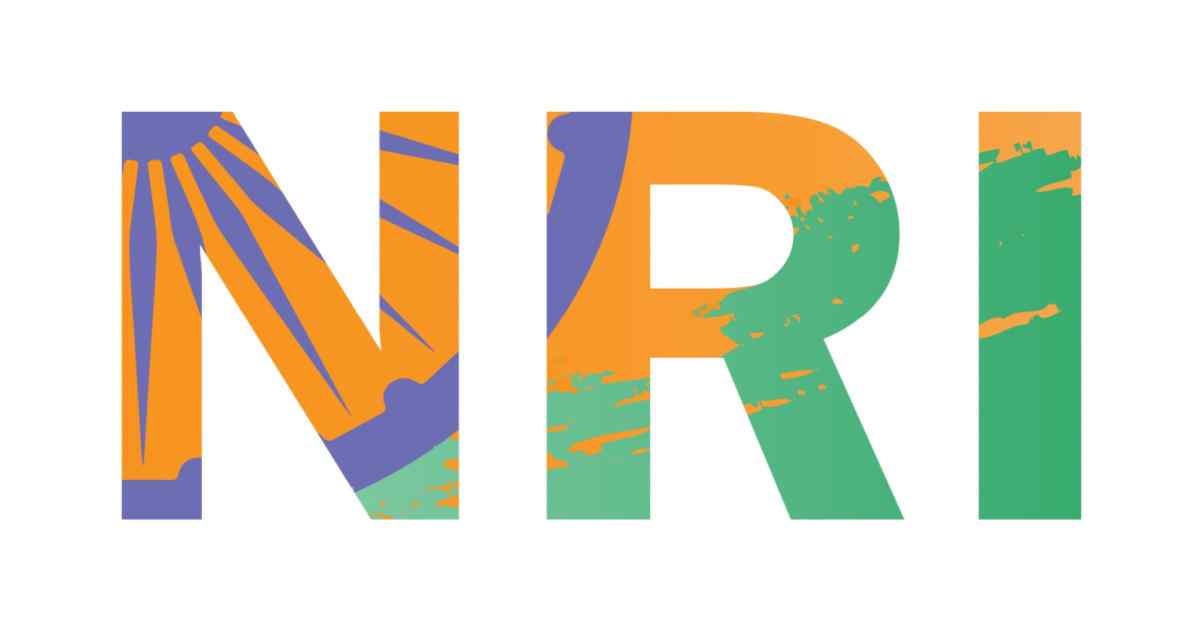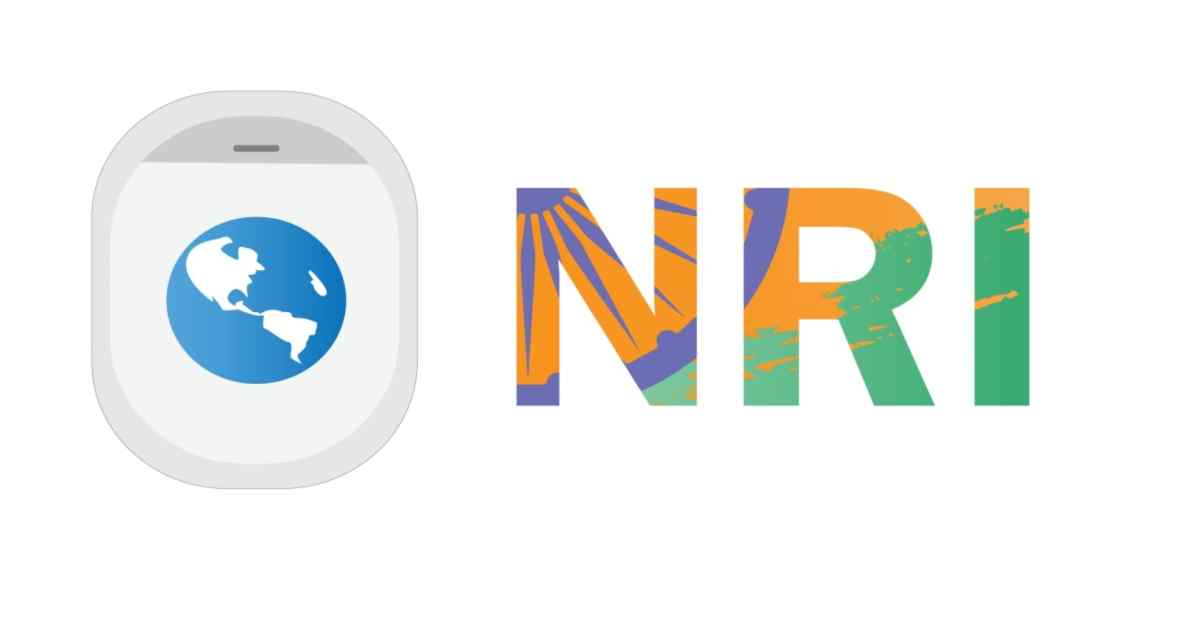Table of Contents
Quality Service Guarantee Or Painting Free

Get a rental agreement with doorstep delivery

Find the BEST deals and get unbelievable DISCOUNTS directly from builders!

5-Star rated painters, premium paints and services at the BEST PRICES!
Loved what you read? Share it with others!


Submit the Form to Unlock the Best Deals Today
Check Your Eligibility Instantly

Experience The NoBrokerHood Difference!
Set up a demo for the entire community

Tenant Super Relax Plan
Enjoy Hassle-Free Renting
 Full RM + FRM support
Full RM + FRM support Instant alerts & premium filters
Instant alerts & premium filters Rent negotiation & relocation help
Rent negotiation & relocation helpTypes of NRI Accounts You Should Know About in 2025
Table of Contents
Non-Resident Indians (NRIs) have various options when it comes to banking in India. Lets explore the types of NRI accounts, including NRE, NRO, and FCNR, and make informed financial decisions.
What is an NRI Account?
An NRI account, short for Non-Resident Indian account, is a special type of bank account designed to meet the financial needs of individuals who are classified as Non-Resident Indians (NRIs).
These accounts are governed by the Reserve Bank of India (RBI) and are subject to specific terms and conditions. There are three main types of NRI accounts:
Quality Service Guarantee Or Painting Free

Get a rental agreement with doorstep delivery

Find the BEST deals and get unbelievable DISCOUNTS directly from builders!

5-Star rated painters, premium paints and services at the BEST PRICES!
- NRE Account (Non-Resident External Account)
- NRO Account (Non-Resident Ordinary Account)
- FCNR (B) Account (Foreign Currency Non-Resident Account)
To be eligible to open these NRI accounts, individuals must meet specific residency criteria as defined by the Income Tax Act 1961.
Types of NRI Accounts
1. Non-Resident Ordinary (NRO) Savings Account/Fixed Deposit Account
Non-Resident Ordinary (NRO) accounts serve as a financial tool for NRIs to manage their income earned both within India and from abroad. These accounts are denominated in Indian Rupees (INR), and when funds are deposited, any foreign currency is converted into INR at the prevailing exchange rates.
NRO accounts are versatile and suitable for holding income generated within India or received from overseas sources, including rental income, dividends, pensions, and other earnings. It's important to note that interest income earned in an NRO account is subject to Tax Deducted at Source (TDS) in India, with the applicable rate dependent on total income and the terms of the Double Tax Avoidance Agreement (DTAA) with the NRI's country of residence.
NRIs can also have joint account holders, including other NRIs or resident Indians, with the latter typically operating under the "Former or Survivor" mode. NRE accounts interest rates can vary greatly depending on the bank issuing the account.
2. Non-Resident External (NRE) Savings Account/Fixed Deposit Account
Non-Resident External accounts, on the other hand, are specifically designed for NRIs to park their foreign income in India. Similar to NRO accounts, NRE accounts are maintained in INR, and foreign currency deposited into these accounts undergoes conversion at the current exchange rate.
NRE savings accounts are typically used to house savings generated from foreign income sources, such as earnings from employment abroad. The unique feature of NRE bank accounts is their full repatriability, allowing both the principal amount and the interest earned to be freely transferred back to the foreign account without restrictions.
Moreover, the interest income in NRE bank accounts is non-taxable in India, making it a tax-efficient choice for NRIs. These accounts can also have joint account holders, including other NRIs or resident Indians, with a similar "Former or Survivor" mode of operation when resident Indians are included.
3. Foreign Currency Non-Resident (FCNR) Fixed Deposit Account
Foreign Currency Non-Resident (FCNR) accounts cater specifically to NRIs seeking to maintain their deposits in foreign currencies. FCNR accounts require account holders to open and maintain them in foreign currency denominations. NRIs can choose from a list of prescribed foreign currencies, which may include US Dollars (USD), Canadian Dollars (CAD), Euros (EUR), and more.
Like NRE accounts, both the principal amount and the interest earned in FCNR accounts are fully repatriable, allowing funds to be transferred back to the foreign account without restrictions. Additionally, interest income earned in FCNR accounts is non-taxable in India, providing a tax-efficient investment option. The flexibility of FCNR accounts lies in the choice of currency, allowing NRIs to maintain their deposits in the currency of their country of residence or preference.
Differences Between the Types of NRI Bank Accounts
Here are some of the key differences between NRE and NRI account and an FCNR account-
| Parameter | NRO Account | NRE Account | FCNR Account |
| Currency used for deposits | INR- Indian Rupee | INR- Indian Rupee | USD- US DollarsCAN- Canadian DollarsAUD- Australian DollarsSGD- Singapore DollarsEUR- EuroGBP- British Pound SterlingCHF- Swiss FrancsJPY- Japanese Yen |
| Types of accounts | savings, current, or fixed deposit accounts. | savings, current, and fixed deposit accounts. | Only fixed deposit accounts, with a minimum maturity period of 1 year |
| Use/Purpose of account | to deposit income earned within India in Indian Rupees (INR). | to deposit income originating from their country of residence in INR. | to deposit earnings from their country of residence in any of the nine specified currencies. |
| Joint account facility | Can open with another NRI or resident. | Only with other NRI. | Only with other NRI |
| Effect of exchange rate | Not influenced by current exchange rates. | Subject to the influence of prevailing exchange rates. | Influenced by current exchange rates when currency conversion is a factor, and vice versa. |
| Fixed deposit time period | Based on the bank/financial institutions’s guidelines. | Based on the bank/financial institutions’s guidelines. | Maturity tenure of 5-10 years. |
| Repatriability of the balance amount | Interest earnings are fully repatriable, but the principal amount can only be repatriated up to a limit of 1 million USD or its equivalent in a fiscal year. | The entire balance is entirely repatriable. | The entire balance is entirely repatriable. |
| Taxation | Both the principal amount and the interest earned are subject to taxation. | The entire balance, comprising both interest and principal, is eligible for a tax exemption. | Interest earned on FCNR deposits enjoys a tax exemption. |
Eligibility Criteria for Opening an NRI Account
The eligibility criteria for opening NRE, NRO, and FCNR (B) accounts may vary depending on the specific bank. However, there are common eligibility criteria that apply across all financial institutions in India for NRI accounts. The following categories of individuals are generally eligible to open these accounts:
- Individuals employed, running a business, or engaged in some form of trade in a foreign country.
- Individuals employed in roles such as the Indian Navy, airlines registered with foreign countries, work on an oil rig, or with overseas shipping companies, requiring them to be outside India's domestic territories for at least 182 days.
- Government employees holding diplomatic passports.
- Students pursuing their education in foreign countries.
Documents Required for Opening an NRI Account
When applying to open an NRI account, you will typically be asked to provide the following documents and information:
- Completed application form for the specific type of NRI account you wish to open.
- Photocopies of relevant passport pages that contain details such as your name, address, date of birth, passport issuance date, and expiration date.
- Proof of employment, which may include an employment letter or contract if you are employed, or evidence of business ownership or trade if applicable.
- Visa-related documents such as a work permit, student visa, visa permit, employment visa, or residence visa, depending on your status and the type of NRI account you are opening.
- Any additional Know Your Customer (KYC) documents that the bank may require to comply with regulatory guidelines.
It's important to note that specific documentation requirements can vary between banks and may also depend on the type of NRI account you intend to open. Different financial institutions may have their forms and additional requirements, so it's advisable to contact your chosen bank for precise details regarding the documentation needed to open an NRI account.
Advantages of an NRI Account
- Facilitates Investment in Financial Instruments: NRIs can engage in trading market-linked financial instruments like equity shares and debt instruments through their NRI accounts, thanks to schemes like the Portfolio Investment Scheme (PIS) or NRI Portfolio Investment provided by financial institutions
- Tax Benefits: NRIs with NRE and FCNR (B) accounts can enjoy tax-free interest earnings on their deposits as per the provisions of the Income Tax Act 1961.
- High Returns: NRIs who opt to park their funds in fixed deposit accounts, such as NRE FDs or FCNR, can earn substantial returns on their total deposits with minimal risk
- Avoidance of Exchange Rate Fluctuations: With an FCNR account, individuals can deposit their foreign earnings without the need for conversion into Indian Rupees (INR).
Disadvantages of an NRI Account
- Low Liquidity: For NRIs looking to safeguard their finances against exchange rate fluctuations, investing in FCNR accounts means committing to fixed deposit accounts with maturity tenures typically ranging from 1 to 5 years. This limited liquidity can pose challenges for those in need of more flexible access to their funds.
- Prone to Risk: Deposits made in foreign currencies within an NRE account are subject to conversion into Indian Rupees. Consequently, these deposits may experience fluctuations in value due to changes in the exchange rate, potentially resulting in losses during repatriation
Who Should Opt for NRI Accounts?
NRI accounts are well-suited for individuals with specific financial needs and circumstances. Here's a detailed look at who should consider opening NRI accounts:
Source of Income in India
Individuals who have a source of income in India, such as rental income, dividends, or other earnings, can open an NRO account to manage and park such funds.
Dependents in India
NRIs who have dependents or financial obligations in India, or those planning to return to India in the future, may find it beneficial to open NRI accounts. These accounts facilitate remittances and provide a means to manage financial commitments in India.
Participation in Indian Stock Market
Individuals interested in participating in stock market trading in India can open NRI accounts, enabling them to engage in market transactions and investments.
It's important to note that the three types of NRI accounts (NRO, NRE, and FCNR) have distinct terms, conditions, and features that cater to varying financial requirements. Additionally, terms and conditions may slightly vary depending on the specific financial institution or bank. Therefore, individuals should conduct thorough financial planning and assess their specific requirements to determine the most suitable and best NRI account(s) for their needs.
How Can NoBroker Help?
NoBroker offers a range of services and assistance tailored to the needs of NRIs (Non-Resident Indians) who are interested in buying, selling, or managing properties in India. Here's a detailed explanation of how NoBroker can help NRIs:
Property Search: NoBroker provides a user-friendly online platform where NRIs can search for properties in India. They can browse through a wide selection of properties, including apartments, houses, plots, and commercial spaces, across various cities and regions.
Verified Listings: NoBroker ensures that property listings are verified, which helps in reducing the risk of fraudulent listings. NRIs can trust the authenticity of the properties they find on the platform.
Property Management: For NRIs who own properties in India, NoBroker offers property management services. This includes finding suitable tenants, handling rental agreements, and managing property maintenance and repairs on the owner's behalf. This service can be particularly valuable for NRIs who may not be physically present in India to oversee their properties.
Tenant Services: NRIs looking to rent out their properties in India can use NoBroker to find reliable tenants. The platform offers assistance in tenant verification, background checks, and lease agreements, ensuring a hassle-free rental experience.
Assistance with Legal and Financial Matters: NoBroker provides guidance on legal and financial aspects related to property transactions in India. NRIs can get assistance in understanding the legal requirements, tax implications, and financial considerations when buying or selling property in India.
Property Valuation: NoBroker offers property valuation services, helping NRIs determine the fair market value of their properties. This information is essential for making informed decisions about selling or renting out a property.
Dedicated NRI Services: NoBroker's NRI services are specifically designed to cater to the unique needs of non-resident Indians. These services aim to simplify the process of property management and transactions from abroad.
Customized Assistance: NoBroker's team of experts can provide personalized assistance to NRIs based on their specific requirements. Whether it's finding the right property, managing existing properties, or navigating legal and financial complexities, NoBroker offers tailored solutions.
NoBroker's online platform and dedicated NRI services aim to make property transactions and management in India more accessible and convenient for NRIs, regardless of their geographical location.

Frequently Asked Questions
A. The main NRI account types in India are NRE (Non-Resident External), NRO (Non-Resident Ordinary), and FCNR (Foreign Currency Non-Resident).
A. NRE accounts are for foreign income, fully repatriable, and tax-free. NRO accounts are for Indian and foreign income, partially repatriable, and subject to Indian taxes.
A. NRIs (Non-Resident Indians) and PIOs (Persons of Indian Origin) are eligible to open NRI accounts.
A. Interest income in NRE accounts is non-taxable. Interest income in NRO accounts is subject to TDS (Tax Deducted at Source) in India.
A. Yes, resident Indians can be joint account holders in NRI accounts, with specific conditions and operational modes depending on the account type.
Loved what you read? Share it with others!
Most Viewed Articles

NRI Power of Attorney for Property in India: How to Apply, Documents Required and Format
June 1, 2025
28002+ views

Know About ICICI NRI Account: Document Required, Eligibility and Application Process in 2025
January 31, 2025
26391+ views

NRI Accounts in India: List of Best NRE, NRO & FCNR Accounts in 2025
June 1, 2025
17294+ views

NRE vs NRO Account: Understanding the Difference for NRIs
January 31, 2025
9458+ views

TCS on Foreign Remittance: Understanding Implications
January 31, 2025
8460+ views
Recent blogs in
DTAA Income Tax: Meaning, Importance, Benefits & Claim Tax Relief in 2025
July 4, 2025 by CA Akshay Attal
DTAA Between India and UK: Benefits, Tax Rates & How to Claim Relief in 2025
June 22, 2025 by Kruthi





Join the conversation!